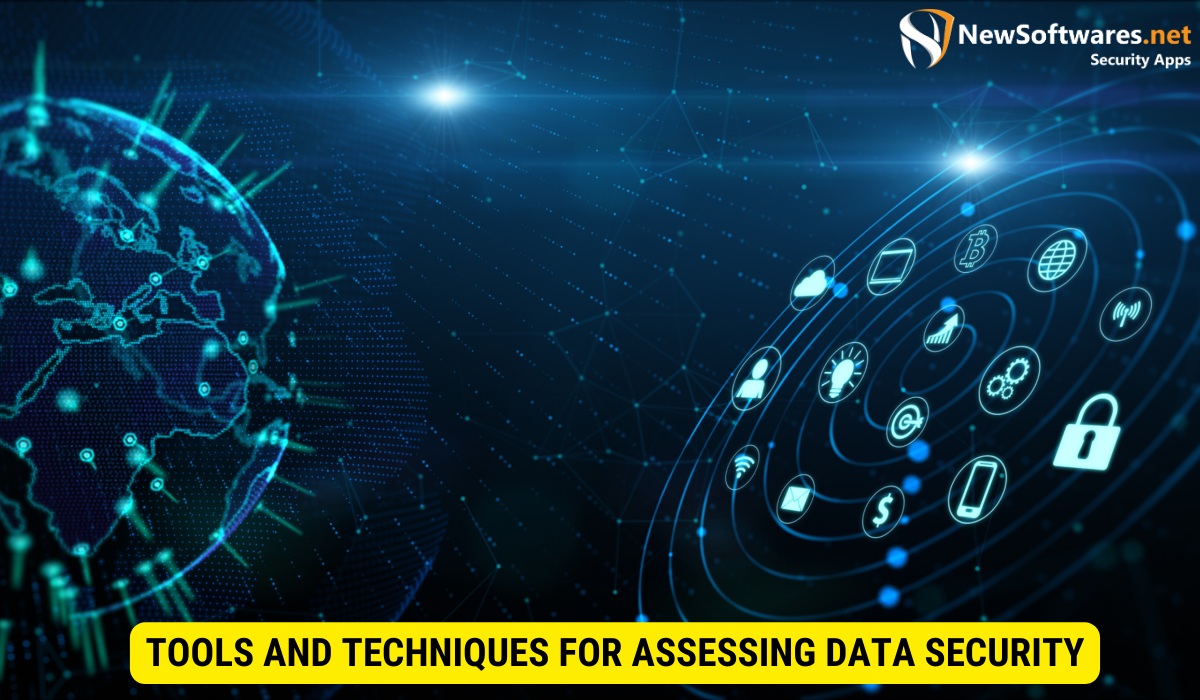Bubble’s data storage system prioritizes security with encryption, access controls, redundancy, and privacy policies. Assess its security through tools, audit reports, and vigilance against common cybersecurity threats.
In today’s digital age, the security of data stored on online platforms is of paramount importance. As more and more businesses and individuals rely on cloud storage solutions like Bubble, it is crucial to understand the risks and measures in place to protect sensitive information. Together, we will explore the importance of data security, provide an overview of Bubble’s data storage system, evaluate its security measures, and discuss potential risks and threats. We will also delve into tools and techniques for assessing data security, giving you the knowledge to make informed decisions regarding your data storage solutions.
Understanding the Importance of Data Security

Data security is at the forefront of every organization’s mind. As the world becomes increasingly organized, the risk of data breaches and cyberattacks has significantly escalated. Data breaches can consequence in reputational damage, financial loss, legal implications, and the compromise of sensitive information. In today’s digital landscape, where personal and financial data is stored and transmitted electronically, robust security measures are essential to mitigate these risks.
Furthermore, data security is not only crucial for businesses, but also for individuals. Personal data, such as social security numbers, bank account information, and medical records, can be exploited by cybercriminals to perpetrate identity theft and fraud. Therefore, individuals must carefully consider the security features offered by cloud storage providers like Bubble to safeguard their valuable information.
The Role of Data Security in Today’s Digital Age
Data security plays a vital role in protecting the confidentiality, integrity, and availability of information. Confidentiality ensures that only authorized individuals can access sensitive data, preventing any unauthorized disclosure. Integrity safeguards that data remains accurate and unaltered during storage and transmission. Availability ensures that data is accessible when needed and protected against accidental or intentional destruction.
Additionally, data security also encompasses the protection of delicate information from unauthorized access, ensuring that only those with legitimate privileges can view, modify, or delete data. It involves implementing robust encryption algorithms, access controls, and monitoring mechanisms to thwart unauthorized activities.
Why Secure Data Storage Matters
Secure data storage is critical for both businesses and individuals. For businesses, data is often the lifeblood of operations, containing valuable intellectual property, trade secrets, and customer information. Breaches not only result in immediate financial loss but also erode trust and damage brand reputation. Furthermore, obeying with data protection regulations, like the (GDPR) General Data Protection Regulation is obligatory for businesses operating in certain jurisdictions, making secure data storage a legal requirement.
Similarly, individuals store a wealth of personal information on digital platforms, from photographs and videos to financial and healthcare data. Without secure storage, individuals are exposed to the risk of identity theft, financial fraud, and personal harm. Secure data storage ensures peace of mind, knowing that personal information is protected against unauthorized access.
An Overview of Bubble’s Data Storage
Bubble offers a comprehensive data storage system designed to meet the needs of businesses and individuals. It provides a secure and scalable platform to store and access data from anywhere, anytime. Understanding the basics of Bubble’s data storage system is essential for assessing its security measures and making informed decisions.
The Basics of Bubble’s Data Storage System
Bubble’s data storage system is built on advanced technologies, utilizing cloud infrastructure to store data securely. The system features redundant storage and backup mechanisms to ensure data availability and resilience. Bubble’s data centers are equipped with multiple layers of physical security, including biometric access controls, surveillance cameras, and 24/7 monitoring.
Data stored on Bubble is encrypted both in transit and at rest. Secure connections using SSL/TLS protocols are established during data transmission, safeguarding information from interception and tampering. At rest, data is protected using industry-standard encryption algorithms, rendering it unreadable without the decryption keys.
Key Features of Bubble’s Data Storage
Bubble’s data storage also boasts several key features designed to enhance security:
- Access Controls: Bubble allows users to define granular entree controls, ensuring that only approved individuals can access specific files or folders. This helps prevent data breaches resulting from unauthorized access.
- Data Redundancy: Bubble employs redundant storage mechanisms, replicating data across multiple geographically diverse data centers. This defenses against data loss due to hardware failures, natural disasters, or other unforeseen events.
- Regular Data Backups: Bubble performs regular backups of stored data, enabling swift recovery in the event of accidental deletion or system failures. Data backups are stored securely and are accessible only to authorized personnel.
- Monitoring and Auditing: Bubble maintains a comprehensive monitoring and auditing system, logging all access and activities performed on users’ data. This allows for easy detection of any anomalous behavior and aids in investigating security incidents.
Evaluating Bubble’s Data Security Measures
Assessing the efficacy of Bubble’s data security measures is crucial to determine the level of protection offered to users. This section explores Bubble’s approach to data encryption, its privacy policies, and compliance with relevant regulations.
Bubble’s Approach to Data Encryption
Bubble employs strong encryption algorithms to protect data in transit and at rest. During transmission, data is encrypted using SSL/TLS protocols, ensuring secure communications between users and the Bubble platform. At rest, data is protected using industry-standard encryption algorithms such as AES-256, rendering it unreadable without the appropriate decryption keys. Encryption safeguards that even if an unauthorized individual gains access to the data, it remains jumbled and unusable.
Privacy Policies and Compliance in Bubble
Bubble takes privacy seriously and has implemented comprehensive privacy policies to protect user data. These policies outline the types of data collected, the purposes for which it is collected, and how it is stored and used. Bubble also adheres to data protection regulations, such as the GDPR, which provides individuals with control over their personal data and imposes strict obligations on businesses handling such data.
Additionally, Bubble undergoes regular third-party audits and assessments to validate its security controls and practices. Independent auditors review Bubble’s security infrastructure, policies, and procedures to ensure compliance with industry best practices and standards.
Potential Risks and Threats to Data Stored on Bubble
While Bubble implements robust security measures, it is essential to understand potential risks and threats to data stored on the platform. This section explores common cybersecurity threats to data storage and assesses Bubble’s vulnerability to data breaches.
Common Cybersecurity Threats to Data Storage
Data storage platforms can be targeted by various cyber threats, including:
- Malware Attacks: Malicious software can infiltrate systems and compromise data integrity or exfiltrate sensitive information.
- Phishing Attacks: Cybercriminals attempt to deceive users into providing sensitive information by pretending to be trustworthy entities.
- Insider Threats: Disgruntled employees or contractors with authorized access to data can intentionally leak or steal sensitive information.
Furthermore, evolving threats such as ransomware and zero-day vulnerabilities pose significant risks to data storage platforms.
Assessing Bubble’s Vulnerability to Data Breaches
To assess Bubble’s vulnerability to data breaches, it is essential to consider factors such as its track record, response to security incidents, and transparency regarding security practices. The platform’s commitment to promptly patching vulnerabilities and implementing penetration testing can also contribute to mitigating potential risks. Users should stay informed about any reported security incidents and consider adopting additional security measures like multi-factor authentication and regular password updates.
Tools and Techniques for Assessing Data Security

Assessing data security is a complex task, requiring specialized tools and techniques. This section explores some key tools and techniques that can assist in evaluating the security of data storage solutions like Bubble.
Using Security Assessment Tools
Various security assessment tools are available to evaluate the security posture of cloud storage platforms. Vulnerability scanners can identify system weaknesses, while penetration testing tools simulate real-world attacks to uncover vulnerabilities. Additionally, tools that assess encryption strength and monitor network traffic can provide insights into the effectiveness of data security measures.
Understanding Security Audit Reports
Security audit reports help users understand the findings and recommendations of independent assessments conducted by experts. These reports provide insights into the effectiveness of security controls, areas for improvement, and the overall security posture of the data storage platform.
Key Takeaways
- Data security is crucial in today’s digital age, protecting valuable information from breaches and cyberattacks.
- Bubble’s data storage system offers robust security features, including encryption, access controls, and redundancy.
- Assessing Bubble’s data security measures involves evaluating its approach to encryption, privacy policies, and compliance.
- Potential risks and threats to data stored on Bubble include malware attacks, phishing attempts, and insider threats.
- Tools and techniques such as security assessment tools and security audit reports aid in evaluating data security.
FAQs
Is Bubble’s data storage system secure?
Bubble’s data storage system is built with robust security measures, including encryption, access controls, and redundant storage. However, users should assess their specific security requirements and consult with Bubble regarding any additional measures or customizations.
What should individuals consider when storing personal data on Bubble?
Individuals should ensure that Bubble’s privacy policies align with their expectations and comply with applicable data protection regulations. It is also advisable to enable additional security features such as two-factor authentication and regularly update passwords.
How can I assess the security of data stored on Bubble?
Assessing the security of data stored on Bubble can involve using security assessment tools, reviewing security audit reports, and staying informed about any reported security incidents or updates. Additionally, understanding Bubble’s encryption practices, access controls, and compliance with relevant regulations is essential.
How can I protect my data from common cybersecurity threats?
To protect data from common cybersecurity threats, users should accept best practices such as using strong, unique passwords, enabling multi-factor authentication, keeping software and systems up to date, and being vigilant against phishing attempts. Regularly backing up data and encoding sensitive information also add an extra layer of protection.
What steps should I take if I suspect a data breach on Bubble?
If you suspect a data breach on Bubble, it is crucial to report the incident to Bubble’s support team immediately. They will guide you through the necessary steps, such as changing passwords, reviewing account activity, and enabling additional security measures to protect your data.
Conclusion
In today’s digital landscape, the security of data stored on online platforms like Bubble is of utmost importance. Robust data security measures are essential to protect sensitive information from breaches and cyberattacks. By understanding the importance of data security, evaluating Bubble’s data storage system and security measures, and being aware of potential risks and threats, users can make well-versed decisions to protect their data effectively. Assessing data security requires a combination of tools, techniques, and vigilance. Utilizing security assessment tools, reviewing security audit reports, and staying updated on industry best practices will aid in ensuring the security of data stored on Bubble and similar platforms.
